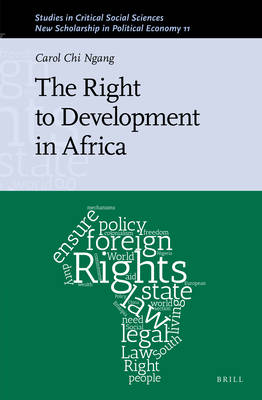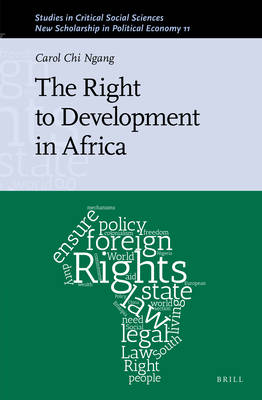
- Afhalen na 1 uur in een winkel met voorraad
- Gratis thuislevering in België vanaf € 30
- Ruim aanbod met 7 miljoen producten
- Afhalen na 1 uur in een winkel met voorraad
- Gratis thuislevering in België vanaf € 30
- Ruim aanbod met 7 miljoen producten
Omschrijving
In The Right to Development in Africa, Carol Chi Ngang provides a conceptual analysis of the human right to development with a decolonial critique of the requirement to have recourse to development cooperation as a mechanism for its realisation. In his argumentation, the setbacks to development in Africa are not necessarily caused by the absence of development assistance but principally as a result of the lack of an operational model to steer the processes for development towards the highest attainable standard of living for the peoples of Africa. Basing on the decolonial and capability theories, he posits for a shift in development thinking from dependence on development assistance to an alternative model suited to Africa, which he defines as the right to development governance.
Specificaties
Betrokkenen
- Auteur(s):
- Uitgeverij:
Inhoud
- Aantal bladzijden:
- 436
- Taal:
- Engels
- Reeks:
- Reeksnummer:
- nr. 201
Eigenschappen
- Productcode (EAN):
- 9789004467811
- Verschijningsdatum:
- 21/10/2021
- Uitvoering:
- Hardcover
- Formaat:
- Genaaid
- Afmetingen:
- 155 mm x 235 mm
- Gewicht:
- 846 g

Alleen bij Standaard Boekhandel
+ 610 punten op je klantenkaart van Standaard Boekhandel
Beoordelingen
We publiceren alleen reviews die voldoen aan de voorwaarden voor reviews. Bekijk onze voorwaarden voor reviews.










